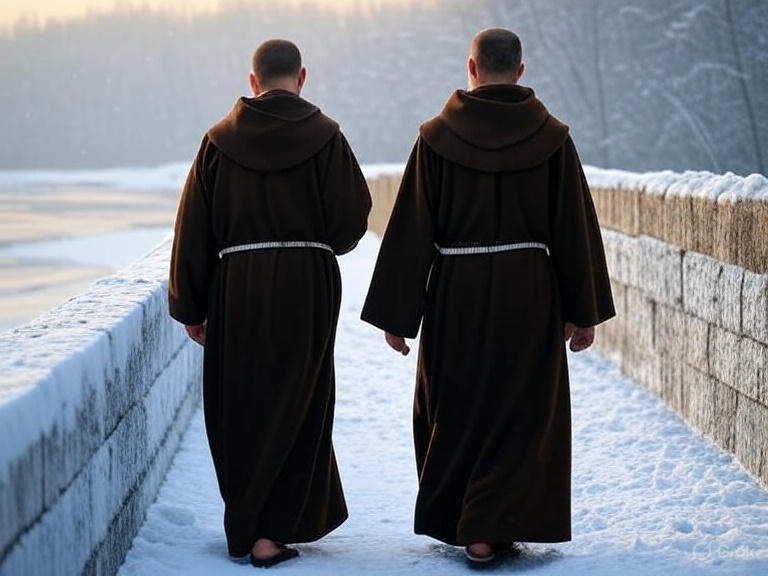
Jack Pantaleo tells this story about two monks walking back to their monastery in the freezing cold: As they cross a bridge, two monks hear a man calling for help in the ravine below. They want to stop, but know they must reach the monastery before sunset or they will freeze to death. The first monk chooses to risk the danger of the cold in order to help another to safety. He climbs down into the ravine and gathers the wounded man into his arms, and slowly makes his way back to the monastery. The second monk has already gone on ahead, determined to get back safely before sunset. Night comes, and with it, the bitter cold. As the first monk nears the monastery, he stumbles over something in the middle of the road. To his sorrow, it is the body of his brother who had gone on alone and had frozen to death. In seeking to save his life, he had lost it. But the compassionate monk, willing to lose his life, was kept warm by the heat exchanged from carrying the stranger in need. **
Friends and Family of Lakeway United Methodist Church, grace and God’s peace to each of you in the name of Jesus, the Christ. Amen. This story has shades of the Parable of the Good Samaritan (Luke 10:29-37) When we read carefully this story, two monks hear a man calling for help in a ravine below. This is enough to initiate your desire to help at any cost and in any situation; however, weather was not ideal. In fact, the weather was freezing and the two monks were walking back to their monastery. It was still daylight, but barely. One monk follows the sound for help. The other did not want to risk his life and made his way back to the monastery, alone. This is a real, yet tragic story. The reality is that people end up in dangerous and life-altering situations. The weather is real. The cry for help is real. The decision to help or not is real. And risking one’s own safety has happened all throughout human history. With the end result being the saving of a life, or both lives perishing. All of us make decisions on a variety of situations. These two monks made different decisions. Could the outcomes have been different? Yes. Regardless, the crux of this story is that we decide to do this, or not do that. We prefer a win-win style of decision-making in a situation, every time. In this story, we will never know their thought process. Today, I pray that you will have a blessed day, and the decisions you make will be all win-win; however, should they not be, may God’s wisdom prevail. Blessings from Pottsboro, Pastor Frank (alegria@lakewayumc.org)
** (As cited by Michael J. Christensen, The Samaritan's Imperative [Nashville: Abingdon, 1991], 33)
